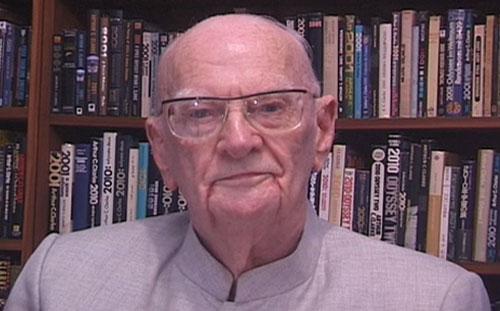Difference between revisions of "March 19, 2008"
| (2 intermediate revisions by the same user not shown) | |||
| Line 1: | Line 1: | ||
__NOTOC__ | __NOTOC__ | ||
=Arthur Clarke= | =Arthur Clarke= | ||
| + | <!-- Start of content --> | ||
<!-- ws:start:WikiTextHeadingRule:0:<h1> --> | <!-- ws:start:WikiTextHeadingRule:0:<h1> --> | ||
<!-- ws:start:WikiTextLocalImageRule:4:<img src="/file/view/LPOD-Mar19-08.jpg/34852509/LPOD-Mar19-08.jpg" alt="" title="" /> -->[[File:LPOD-Mar19-08.jpg|LPOD-Mar19-08.jpg]]<!-- ws:end:WikiTextLocalImageRule:4 --><br /> | <!-- ws:start:WikiTextLocalImageRule:4:<img src="/file/view/LPOD-Mar19-08.jpg/34852509/LPOD-Mar19-08.jpg" alt="" title="" /> -->[[File:LPOD-Mar19-08.jpg|LPOD-Mar19-08.jpg]]<!-- ws:end:WikiTextLocalImageRule:4 --><br /> | ||
<em>image from [http://saturn.jpl.nasa.gov/multimedia/videos/video-details.cfm?videoID=160 JPL]</em><br /> | <em>image from [http://saturn.jpl.nasa.gov/multimedia/videos/video-details.cfm?videoID=160 JPL]</em><br /> | ||
<br /> | <br /> | ||
| − | Everyone in the world seemed to refer to him as Arthur C. Clarke, but in his videos he always introduced himself as just Arthur Clarke. He died early today, March 19 in Sri Lanka, the island he had lived on since 1956, but for the last decade he frequently used the Internet to deliver talks to science and science-fiction audiences. An example, is the [http://saturn.jpl.nasa.gov/multimedia/videos/video-details.cfm?videoID=160 greetings] he sent the Cassini team in September 2007. Arthur Clarke did not write many novels that featured the Moon, but he wrote perhaps the most visible science fiction story of the last 50 years: <em>2001 - A Space Odyssey</em>, whose [http://www.filmsite.org/twot.html movie version] took Dr. Heywood R. Floyd and millions of viewers to the Moon and to the monolith buried in a crater near Tycho. Because so many astronomers and space scientists were inspired by his work craters throughout the solar system will be named for Clarke - there is already a [ | + | Everyone in the world seemed to refer to him as Arthur C. Clarke, but in his videos he always introduced himself as just Arthur Clarke. He died early today, March 19 in Sri Lanka, the island he had lived on since 1956, but for the last decade he frequently used the Internet to deliver talks to science and science-fiction audiences. An example, is the [http://saturn.jpl.nasa.gov/multimedia/videos/video-details.cfm?videoID=160 greetings] he sent the Cassini team in September 2007. Arthur Clarke did not write many novels that featured the Moon, but he wrote perhaps the most visible science fiction story of the last 50 years: <em>2001 - A Space Odyssey</em>, whose [http://www.filmsite.org/twot.html movie version] took Dr. Heywood R. Floyd and millions of viewers to the Moon and to the monolith buried in a crater near Tycho. Because so many astronomers and space scientists were inspired by his work craters throughout the solar system will be named for Clarke - there is already a [https://the-moon.us/wiki/Clark Clark] on the Moon (named for the American telescope makers). Perhaps on a moon far, far away another star child has been born, a reincarnated human to inspire another civilization.<br /> |
<br /> | <br /> | ||
<em>Chuck Wood</em><br /> | <em>Chuck Wood</em><br /> | ||
| Line 24: | Line 25: | ||
Mark Zambelli<br /> | Mark Zambelli<br /> | ||
<br /> | <br /> | ||
| − | <!-- Removed reference to store page --> | + | <!-- Removed reference to store page 2 --> |
| + | <!-- End of content --> | ||
{{wiki/ArticleFooter}} | {{wiki/ArticleFooter}} | ||
Latest revision as of 18:28, 18 August 2018
Arthur Clarke

image from JPL
Everyone in the world seemed to refer to him as Arthur C. Clarke, but in his videos he always introduced himself as just Arthur Clarke. He died early today, March 19 in Sri Lanka, the island he had lived on since 1956, but for the last decade he frequently used the Internet to deliver talks to science and science-fiction audiences. An example, is the greetings he sent the Cassini team in September 2007. Arthur Clarke did not write many novels that featured the Moon, but he wrote perhaps the most visible science fiction story of the last 50 years: 2001 - A Space Odyssey, whose movie version took Dr. Heywood R. Floyd and millions of viewers to the Moon and to the monolith buried in a crater near Tycho. Because so many astronomers and space scientists were inspired by his work craters throughout the solar system will be named for Clarke - there is already a Clark on the Moon (named for the American telescope makers). Perhaps on a moon far, far away another star child has been born, a reincarnated human to inspire another civilization.
Chuck Wood
Related Links
BBC obituary with video interviews
Yesterday's LPOD: Irresistible
Tomorrow's LPOD: A Step Closer To Solving the Riddle of Lunar Water
COMMENTS
1) I'll miss him ;(
Aleksander Božič
2) A true visionary, scientist and author... He was a childhood hero of mine and it's very sad to hear this news, he will be missed.
Mark Zambelli
COMMENTS?
Register, Log in, and join in the comments.



